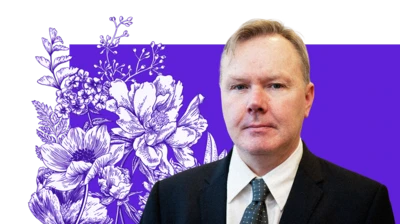We've updated our Privacy and Cookies Policy
We've made some important changes to our Privacy and Cookies Policy and we want you to know what this means for you and your data.
Drugs ban 'safety-valve' removed
Image source, Getty Images
- Author, Mark Easton
- Role, Home editor
After my blog on Wednesday on tensions between drugs advisors and the Home Office, more details have emerged of how the expert panel on legal highs was split down the middle on whether to go for a total ban.
While ministers claim their Psychoactive Substances Bill reflects the findings of the experts, I am told that the hand-picked committee was divided on whether low-harm substances like amyl nitrate (poppers) and nitrous oxide (laughing gas) should be included.
The final report was drafted by Home Office officials but some members of the panel, which included three people who also sit on the ACMD, insisted on writing in what became known as the "safety-valve" clause.
The recommendation for "general prohibition" was amended to say that there should be exemptions for substances "where the risks of health and social harms can be adequately assessed". The line was included specifically to ensure that some low risk products could be excluded from the ban.
The coalition government response last October went along with the safety-valve clause saying it would "explore how to put in place a schedule of exemptions and make provision to add to these where the risks of health and social harms can be adequately assessed".
But when the new Conservative government published the Psychoactive Substances Bill last month, any mention of assessing social harms or health risks had gone. The safety-valve clause insisted upon by the expert panel had been removed.
The Home Office has made it clear that "there is no provision in the Bill to enable the licensing of so-called low-harm substances" arguing that there are difficulties in defining low risk and that it might "send out confusing messages about the safety of new psychoactive substances".
It is likely that this is going to be a major battleground as the controversial bill reaches committee stage in Parliament. The LibDem Home Affairs spokesman Lord Paddick has made it clear his party will oppose the legislation in its current form. "As drafted, the Bill is far too broad and indiscriminate, further undermining credibility and efficacy in reducing harm," he told the House of Lords.
The Bill would ban any substance that affects a consumer's "mental functioning or emotional state", unless specifically exempted by the Home Secretary. This definition goes further than the Irish legislation on which the approach is modelled.
In Ireland, a psychoactive substance is defined as one that results in "a significant disturbance in, or significant change to, motor function, thinking, behaviour, perception, awareness or mood".
The word "significant" is, of course, significant. It provides the safety valve that excludes low-risk and low-harm products.
Whether UK ministers will relent on this issue of a "safety-valve clause" is perhaps the biggest question as the Psychoactive Substances Bill makes its progress through Parliament.
Top Stories
More to explore
Most read
Content is not available








